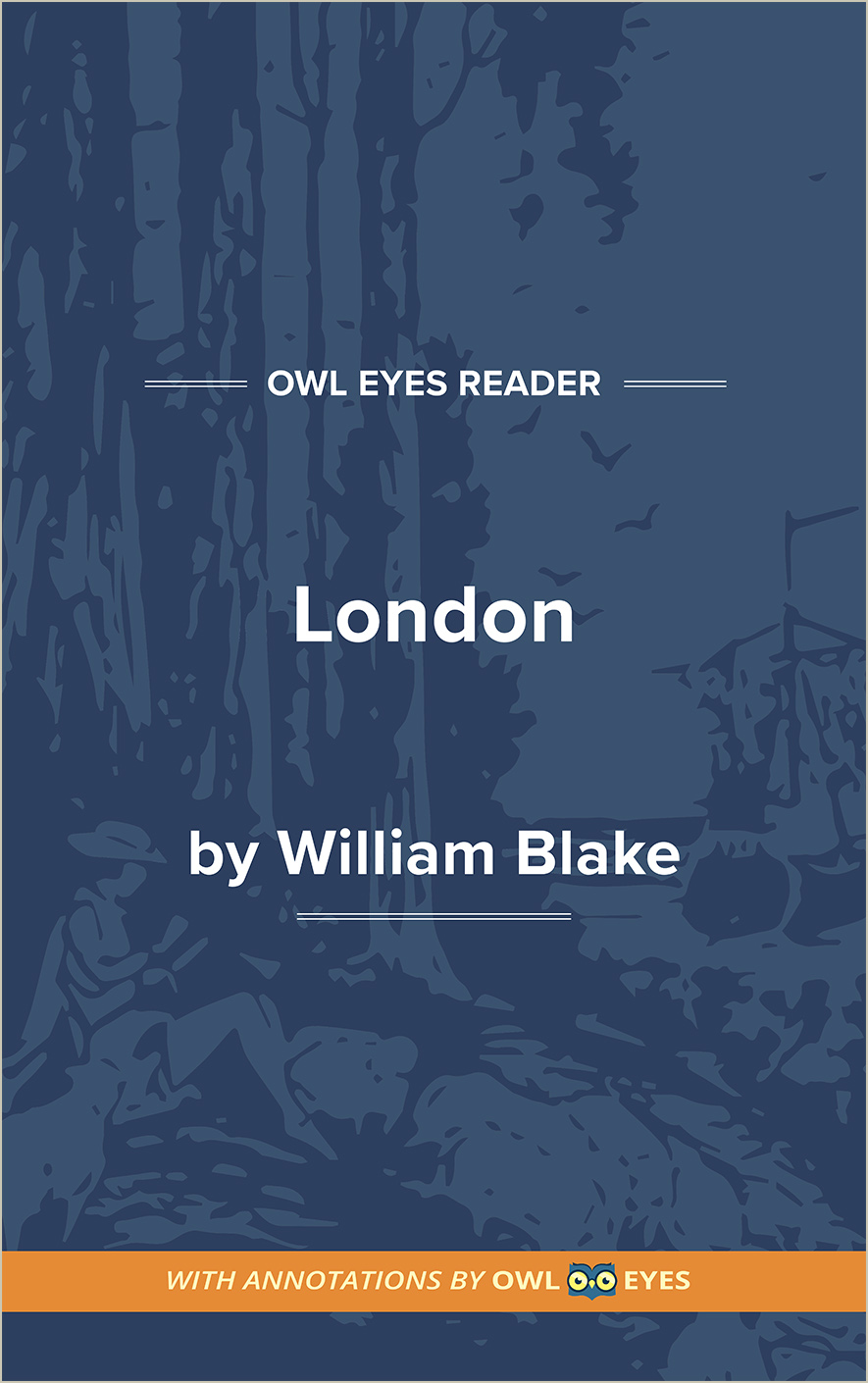Analysis Pages
Vocabulary in London
Vocabulary Examples in London:
Text of the Poem
🔒"And blights with plagues the Marriage hearse ..." See in text (Text of the Poem)
"the hapless Soldiers sigh..." See in text (Text of the Poem)
"mind-forg'd manacles..." See in text (Text of the Poem)

